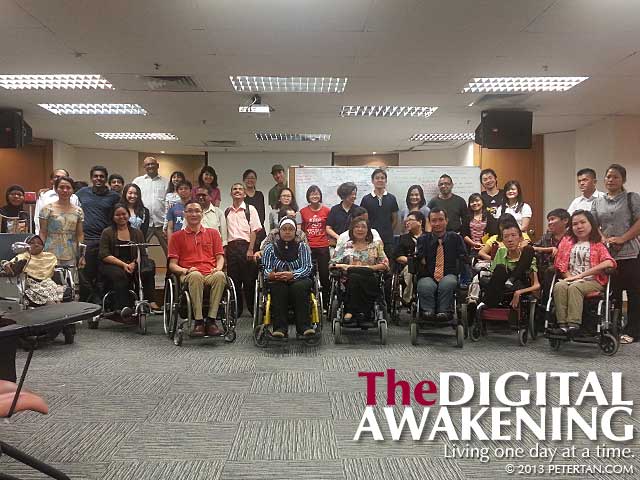There are laws in Malaysia that protect the rights of disabled persons. The Uniform Building By-Law 34A (UBBL 34A) of the Street, Drainage and Building Act has been in force since 1991 to ensure equal access to public buildings for disabled persons. The landmark Persons with Disabilities Act (Akta Orang Kurang Upaya) was enacted in 2008. Malaysia became a signatory to the Convention on the Rights of Persons with Disabilities (CRPD) in 8th April, 2008 and ratified the document in 19th July, 2010.
However, Malaysia did not sign the Optional Protocol to the CRPD. The Optional Protocol allows individuals to lodge complaints with the United Nations Committee on the Rights of Persons with Disabilities should a signatory country violates its obligations under the CRPD where the complainant has exhausted all avenues domestically.
The UBBL 34A requires that buildings constructed after it came into force be accessible to disabled persons and that buildings existing before that must be retrofitted with such facilities within three years. These facilities must comply with the Malaysia Standard MS 1184: Code of Practice on Access for Disabled Persons to Buildings. Twenty years later, many old buildings are still not renovated to comply to the by-law and newer buildings were built with facilities that are not usable and not built according to the code of practice. Furthermore, the PWD Act has not changed the situation for the better. Public transport, schools and other infrastructure are still inaccessible to disabled persons.
With these shortcomings in view, the Pusat Rakyat LoyarBurok (PRLB), a community centre run by the Malaysian Centre for Constitutionalism and Human Rights (MCCHR) and the Kuala Lumpur Bar Young Lawyers Committee (KLYLC) conducted a Strategic Litigation Workshop for disabled persons at the KL Bar Auditorium last Saturday to work on legal solutions to compel the authorities to comply with the UBBL 34A and the PWD Act. This workshop was the last of a series of four Public Interest Litigation Workshops to promote the human rights in the country.
It was unfortunate that the auditorium which was located in Wisma Kraftangan was inaccessible. There were no ramps for wheelchair users to get into the building. The venue was then changed to the Malaysian Bar Council’s Raja Aziz Addruse Auditorium. The switchback ramp outside the building was rather steep and wheelchair users had difficulty ascending it independently on manual wheelchairs. There was also a safety issue with the landing where it did not have rails to prevent wheelchairs from going off the edge.
At the same time, pedestrian walkways leading to the building were fraught with poorly designed kerb ramps, drain covers with wide gaps and broken pavings. Incidentally, the Dewan Bandaraya Kuala Lumpur (Kuala Lumpur City Hall) headquarters, the authority responsible for the upkeep of these facilities, is just a short walk away.

Disabled persons and lawyers at the Strategic Litigation Workshop held at the Malaysian Bar Council Auditorium.
Nevertheless, in spite of the barriers, about twenty disabled persons and an equal number of lawyers huddled in the auditorium. The workshop kicked off with the lawyers briefing the participants on the legal approaches and processes. Disabled participants also gave feedback on the problems with regards to inaccessibility to public buildings.
After tea break, participants were facilitated on their understanding on where disabled people stand in the scheme of things as citizens in this country in the session that was aptly called the Big Picture. What struck me most was how the interests of disabled people are under-represented in the entire political and administrative system. This session was followed by the Action Pyramid where we were presented with various options on advocacy activities that could be utilised to further the cause.
This workshop and the unfolding events represent another significant milestone in the annals of disability rights movement in Malaysia and a major step forward since the PWD Act came into force in 2008. The Kuala Lumpur legal fraternity, namely the MCCHR and KLYLC, deserve all the credit for their initiative in upholding and protecting the rights of disabled people in this country as provided for under the law.
After the conclusion of the workshop, participants were treated to a very scrumptious lunch of Peranakan cuisine at Precious Old China Restaurant & Bar in Central Market. A big thank you to all lawyers involved for generously contributing their time and effort for the betterment of disabled people in Malaysia. Things will never be quite the same for us again.
